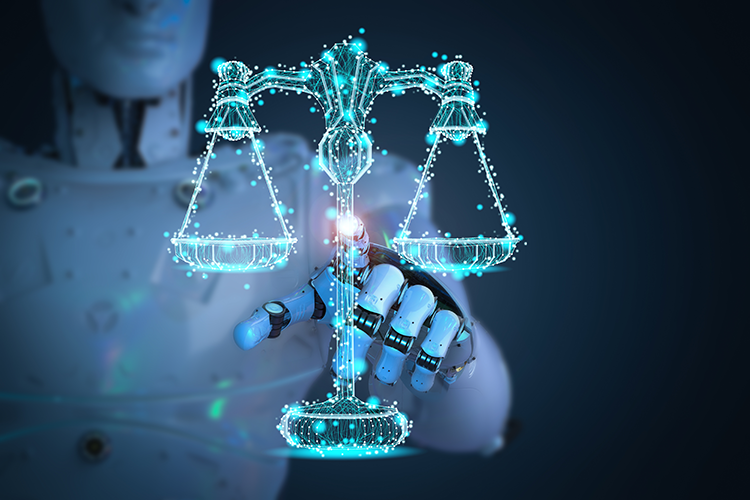Copyright Law
Art generated solely by AI can’t be copyrighted, federal appeals court says

A federal appeals court has ruled against a computer scientist who sought to copyright a work of art made by his artificial intelligence system, the “Creativity Machine.” (Image from Shutterstock)
A federal appeals court has ruled against a computer scientist who sought to copyright a work of art made by his artificial intelligence system, the “Creativity Machine.”
Computer scientist Stephen Thaler is not entitled to copyright artwork made solely by AI, the U.S. Court of Appeals for the District of Columbia Circuit ruled Tuesday.
Reuters and Courthouse News Service have coverage of the March 18 opinion.
“The Creativity Machine cannot be the recognized author of a copyrighted work because the Copyright Act of 1976 requires all eligible work to be authored in the first instance by a human being,” the D.C. Circuit said in a decision by Judge Patricia Millett, an appointee of former President Barack Obama.
The holding makes is unnecessary to address the U.S. Copyright Office’s argument that the U.S. Constitution also requires human authorship of copyrighted material, Millett said. The appeals court also said Thaler had waived an argument that he could obtain a copyright because he made and used the Creativity Machine.
The D.C. Circuit said its decision does not prohibit a copyright when a work is authored by a human with the help of AI.
“The rule requires only that the author of that work be a human being—the person who created, operated or used artificial intelligence—and not the machine itself,” Millett said.
Millett acknowledged that the Copyright Office has rejected some copyright applications based on the human-authorship requirement, even when a human is listed as the author.
“Line-drawing disagreements” over how much that AI contributed to a work aren’t issue in Thaler’s case, however, because he listed the Creativity Machine as the sole author, the appeals court said.
Thaler plans to appeal the decision, his attorney, Ryan Abbott, told Reuters.
Write a letter to the editor, share a story tip or update, or report an error.

